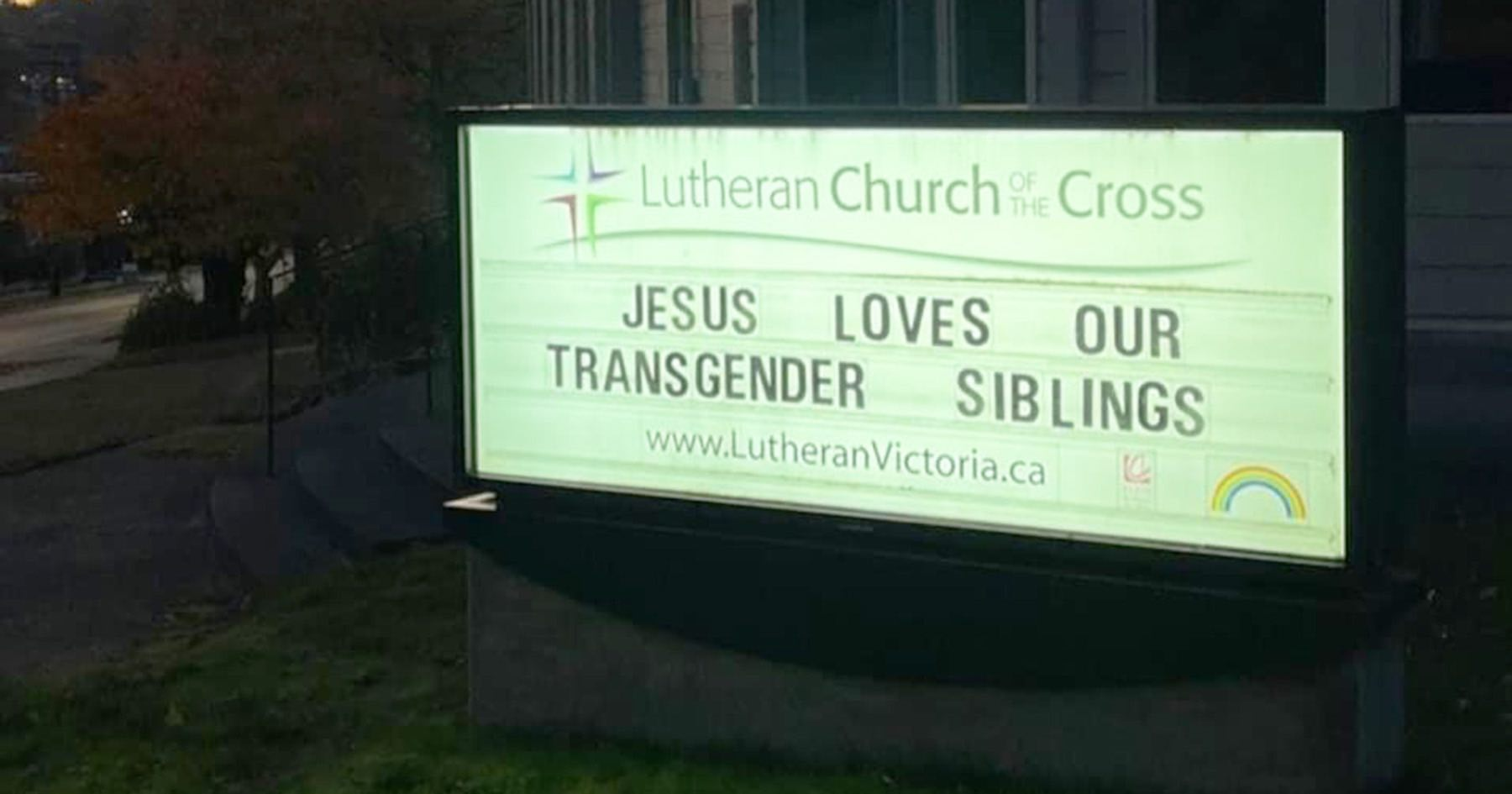I think about my trans friends and of their courage to simply be themselves. It’s not right that they are forced to put their lives on the line every time they step outside the door. Whenever they go out in public, they risk putting themselves in harm’s way, whether it is someone saying something transphobic to them, or worse, the risk of physical violence. The recent attacks against queer people at a gay bar in Colorado Springs, Colorado is on all our minds.
It hasn’t helped that some celebrities, like J.K. Rowling of Harry Potter fame, have spoken publicly against trans people. A surprising number of individuals with sizeable platforms have followed suit. In Canada, Jordan Peterson, a prolific writer and public speaker, has made hateful comments about the trans community as well. Sadly, in the U.S., there has been a spate of anti-trans legislation brought forward at various government levels over the last year. These have included “bathroom bills” and schools banning books and curriculum lessons that are trans-affirming. We would be naïve to think that what happens in the U.S. doesn’t affect us in Canada too, especially at a time when news stories and conversations on social media are communicated in real time.
Swimming in the midst of this toxic transphobic soup, we as Christians need to find ways to push back against transphobia in order to protect trans kids and adults. This includes identifying prejudices that are inherent in our churches: ways in which we have been responsible for systematically excluding and singling out queer people for a long time. One thing that helps is in teaching theologies that acknowledge trans people as children of God. By recognizing their worth and holiness, we create safer spaces for them, and we rediscover our own grounding in God’s love. Hate, like sin left unchecked, has a tendency to turn inwards. It also wounds those initiating the harm. When we counteract transphobia in the Church and in the wider community, we give expression to our collective humanity.
Like any theology, it’s only effective when it is put into practice. One of the challenges of ministry is living by a new theological outlook. Pastor Lyle McKenzie and I serve as co-pastors at Lutheran Church of the Cross in Victoria, BC. Working together, we have been blessed to have a congregation that is willing to wrest with questions around becoming more trans-affirming, is open to growing through conversation, and is centered on God’s love.
I have now served at the congregation as co-pastor for nearly four years. I remember in my first year, we hosted Kingsley Strudwick, the founder of Ambit Gender Diversity Consulting, who offered a Trans 101 session that was open to the public. Kingsley was willing to meet people where they were at and to answer a wide spectrum of questions from our church folks. We had a chance to introduce ourselves to one another using our pronouns. Later at a queer-affirming Sunday worship, we invited parishioners and visitors to give their pronouns on their name tags. Many of us found this awkward at first because it’s not something we were used to doing. Over the following Sundays, we as worship leaders introduced ourselves by including our pronouns. A member of the trans community told us that through this sort of repetition, we make such practices normative. This needs to happen on every Sunday, instead of just “queer-affirming Sundays” in order to make churches safer for trans kids and adults.
Other initiatives that have sprung up in recent years, include a “Queer Board Games” program, having occasional check-ins with a queer support team for feedback, marching in the Victoria Pride Parade under the Lutheran Church banner, supporting the Inclusive Christians campus ministry at the University of Victoria, and of course by building rapport and relationships with queer folks in our own congregation. I will be the first to admit that I’ve made mistakes and haven’t been as consistent in supporting members of the queer community as I would’ve liked to. To build good relationships, we need to invest time and effort.
One recent example of community dialogue around supporting trans people was on our church sign. On it, we had put up the message, “Jesus Loves Our Transgender Siblings.” Sometimes simple and short messages are the best. On the same evening that the sign went up, someone on Instagram posted a photo of it, tagging us with the comment, “Every day looks a bit brighter after reading a @lutheranvictoria sign.” Afterwards, we received many positive comments about our sign message. A student told us they feel safer living in the neighbourhood knowing we have an affirming presence. All in all, it’s a very simple thing to do, and it’s a way to uplift our neighbours and to remind ourselves that the Church cares for people within and beyond it. Since putting up the sign, we have formed a committee to help us continue to get our message across.
Besides an executive council, the governance at Lutheran Church of the Cross includes chairs of various boards. One is the board of care for communities. This committee oversees the church’s service to those within its midst and to those surrounding it. This ministry includes caring for parishioners who are homebound, such as those who may not be able to come to church in person. Also within the board are the truth and reconciliation committee, the social justice committee (which includes a refugee sponsorship program), and a queer support team. As with all ministries, we are a work in progress. We continue to discern our future by responding to the ways by which the Spirit calls us to serve.
But I also value contrarian voices. Recently, I received pushback from a queer atheist friend: “Why is it that some churches affirm that God loves us as queer people, while at the same time many more Christians insist that God hates us? So why should we even trust Christians?” In the wake of the shooting in Colorado Springs, and by the way this event gets talked about by right-wing believers, we have our work cut out for us. Rather than disowning these hateful individuals as not being “real” Christians, it’s better to take up the challenge of addressing their ignorance. We are ready to profess a queer-affirming faith in the face of a vast array of hateful, well-financed churches, and Christian voices. Rather than to renounce fellow Christians, it’s more effective to profess courageous and rigorous theologies.




